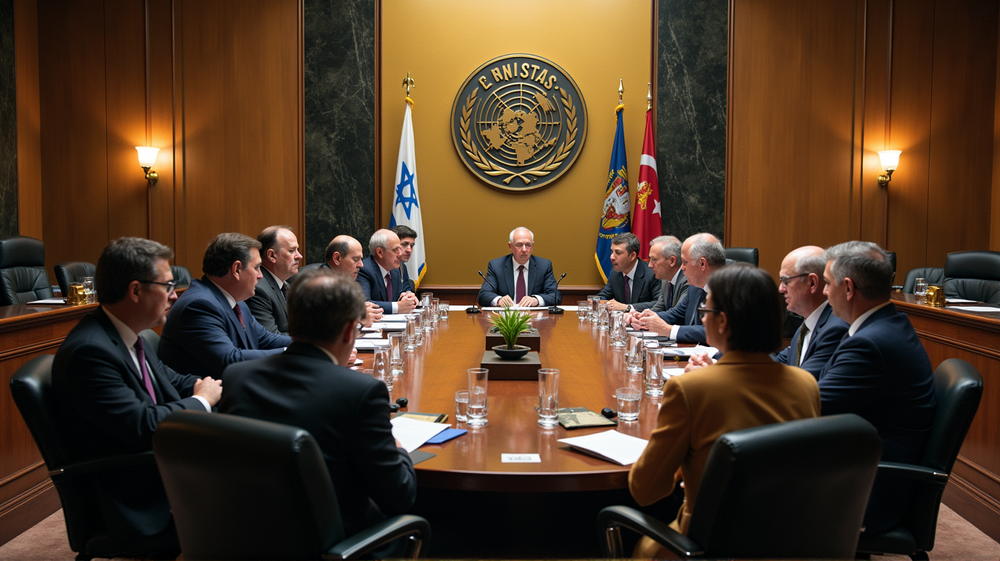The tale of the Middle Eastern Jewish diaspora is one wrought with tales of displacement, oppression, and monumental loss. As the UN delves into documented historical injustices, a staggering revelation has emerged: an estimated $263 billion in assets were lost by nearly a million Jews of the Middle East due to systematic oppressions, state-driven pogroms, and forced expulsions.
The UN’s Recent Revelation
A recent report presented at the UNHCR highlights the tragic, often overlooked segment of Jewish history in the Middle East. According to The Jerusalem Post, systematic state oppression meticulously worked to drive out Jewish communities, leaving behind not just homes, but centuries of heritage and billions in assets. The report details intrinsic state efforts across a tapestry of Middle Eastern countries, which led to a mass exodus of Jewish families.
Echoes from the Past
The stories shared during the UN session paint a poignant picture of the struggle borne by these communities. From Baghdad to Cairo, Jewish families faced relentless persecution that systematically dismantled their homes and lives. Photographs of families standing in front of deserted synagogues, once bustling with laughter and prayer, now remain as stark reminders of a rich history abruptly interrupted.
An Ongoing Call for Justice
While the report sheds light on the historical wrongdoings, it also calls for modern-day acknowledgment and justice. There is a pressing need to address the vast cultural and economic contributions of the once-thriving Middle Eastern Jewish communities and to acknowledge their losses.
The Human Rights Council Meeting Highlights
Amidst the global shifts and changing tides, the UN meeting served as a powerful reminder of the history’s unresolved narratives that demand attention and rectification. The day’s discussions also intersected with U.S. geopolitical maneuvers, showcasing the complex web of past and present international politics.
Moving Forward
In the spirit of reconciliation and rebuilding, the continued drive towards recognition of these historical injustices remains critical. As societies move forward, embracing the multifaceted past allows for better understanding and healing—a journey that continues as the world learns more about the indelible marks left by these displaced communities.
This profound report serves not only as an illuminating historical document but as a timely call to action for recognizing and redressing past wrongs, paving the way for informed discussions on justice, reconciliation, and remembrance.












